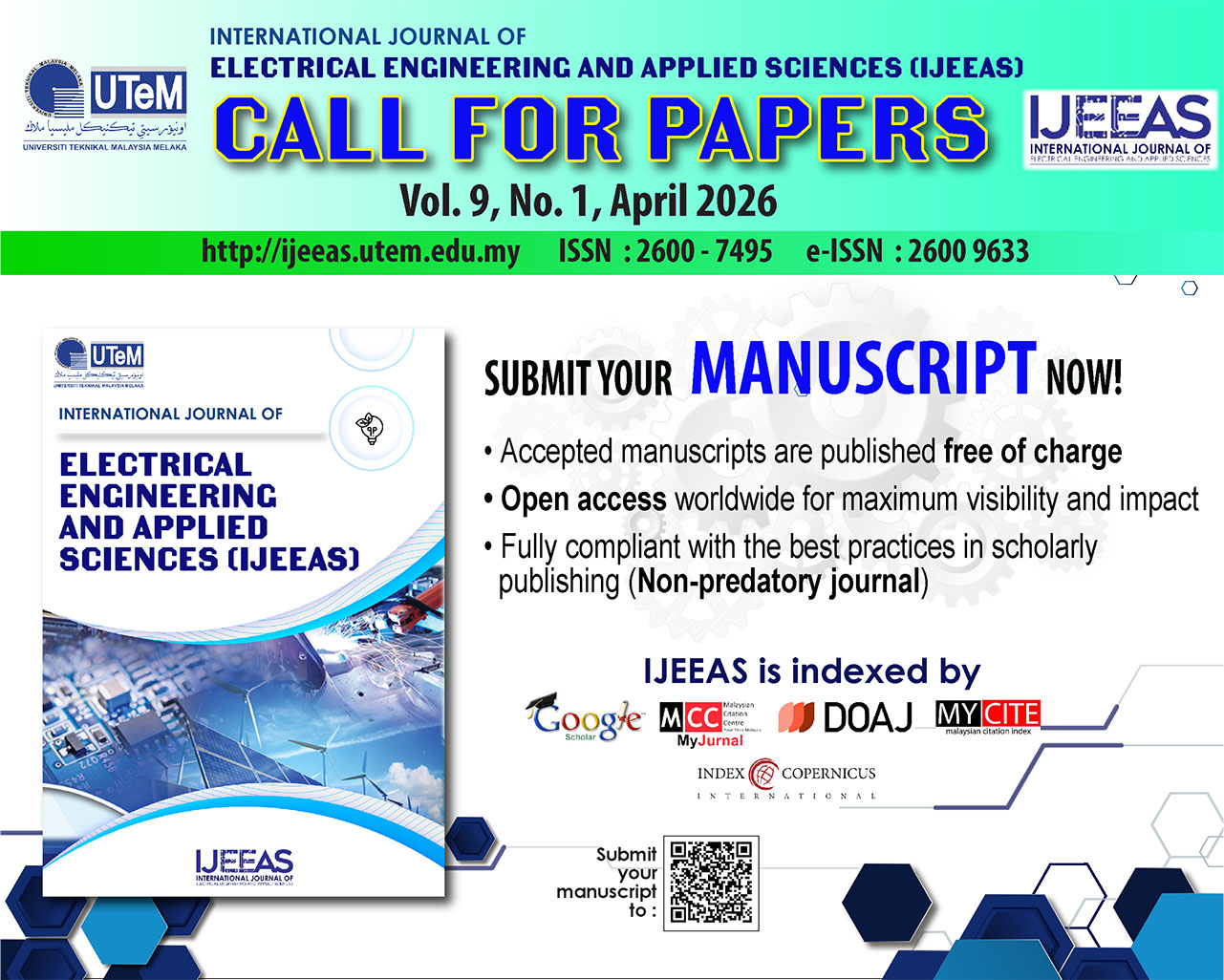Development of Automatic Cloth Folding System by Using Arduino Uno Microcontroller and Servo Gears
DOI:
https://doi.org/10.54554/ijeeas.2024.7.02.008Abstract
The manual folding processes in various industries are prone to inefficiencies, errors, and delays due to their repetitive and labor-intensive nature. Maintaining consistency in folding techniques is also challenging, resulting in disorganized clothing and potential quality issues. Moreover, the high volumes of laundry in busy households or commercial sectors contribute to inefficient folding process. Therefore, this project proposed an automated cloth-folding system. By using this system, the problems related to garments folding can be solved quickly and neatly. The designed system utilized a combination of ultrasonic sensors, gear servo motors, a power supply, an Arduino Uno microcontroller, and a flat board made of plastic with hinges or folding lines that create specific folding templates. The automated cloth-folding system successfully addresses the inefficiencies and challenges associated with manual folding processes, offering a promising avenue for improving speed and consistency in garment folding, particularly for standard-sized items.
Downloads
Downloads
Published
How to Cite
Issue
Section
License
Authors who publish with this journal agree to the following terms:
- Authors retain copyright and grant the journal right of first publication with the work simultaneously licensed under a Creative Commons Attribution License that allows others to share the work with an acknowledgement of the work's authorship and initial publication in this journal.
- Authors are able to enter into separate, additional contractual arrangements for the non-exclusive distribution of the journal's published version of the work (e.g., post it to an institutional repository or publish it in a book), with an acknowledgement of its initial publication in this journal.
- Authors are permitted and encouraged to post their work online (e.g., in institutional repositories or on their website) prior to and during the submission process, as it can lead to productive exchanges, as well as earlier and greater citation of published work (See The Effect of Open Access).







